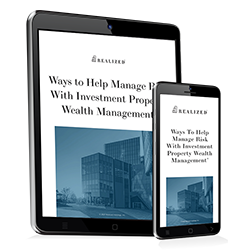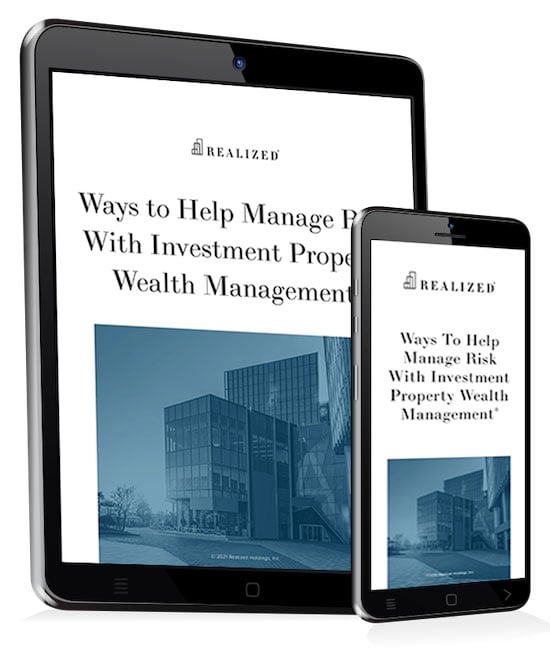
There is no aspect of the economy that’s unaffected by inflation. From consumer spending to employment, investments to interest rates, a sustained rise in cost of goods and price levels reduces purchasing power and erodes the value of investments.
The high and hyperinflation that has dominated headlines throughout 2022 may point to an economy that’s expanded beyond a sustainable rate – consumer spending and demand have outstripped the supply and production of goods, leading to a decline in the purchasing power of the U.S. dollar¹.
Inflation can threaten certain types of investments because it has the potential to reduce overall returns. Below we’ve outlined several different ways inflation can impact various types of investments.
Inflation and Fixed-Rate Investment Risk
The effect of high inflation can be felt especially hard on investments with fixed returns, such as government or corporate bonds, money market accounts, and certificates of deposit. These assets provide fixed payments until they reach maturity, so a high inflation environment diminishes the purchasing power of those returns.
Inflation and Stock Investments
While the impact of inflation on stock returns is a highly debated subject, research often points to lower equity valuations during times of high inflation².
Value stocks may perform better than high-growth stocks in times of inflation. However, inflation affects stocks differently, which can lead to an increase in market volatility and risk. Investing with a long-term horizon, diversification, and rebalancing your portfolio to include more stock in companies that are able pass off rising costs onto consumers, are ways to potentially outrun the pace of inflation and manage investment risk in equities³.
Inflation and Real Estate Investments
Investors seeking ways to manage risk have often turned to real estate, although of course this strategy still presents risk.
Real estate can be a hedge against inflation for a number of reasons:
- It’s generally uncorrelated with broad movements in public markets.
- Valuations and rents tend to move in the same direction as inflation.
- Rising property values lower the loan-to-mortgage values. Equity increases, while payments remain the same.
- Inflation often leads to higher rental and lease rates, which can result in greater recurring returns for landlords.
- Property values tend to stay on a steady upward climb that may exceed or at least keep pace with rising inflation⁴.
Rising rental rates may prove more beneficial for multi-family property owners. Rents can be renegotiated on an annual basis, whereas commercial tenants typically are locked into long-term leases that may not allow for rental escalations that match rising inflation. Multi-family property owners can export the effects of inflation onto their tenants in an attempt to manage investment risk.
Property type plays a large role when investing in alternative assets such as real estate in an attempt to manage risk. Certain property types – multi-family apartment buildings, for instance – are always in demand regardless of the state of the broader economy because people always need roofs over their heads. Hospitality, retail, and other property types that rely on consumer spending may suffer during high inflation as consumer spending and purchasing power wanes.
The Bottom Line
Inflation affects all aspects of the economy through higher prices for goods and services, lower purchasing power. It also can lead to a run-up in values for real estate as supply wanes and demand for various property types increases.
Inflation impacts investments in various ways as well. Fixed-return asset classes are often hit the hardest, while some types of real estate investments may provide a hedge against inflation and a means to manage investment risk.
Sources:
1. Understanding Inflation, Pimco, https://global.pimco.com/en-gbl/resources/education/understanding-inflation
2. The Return Rate on Everything: 1870-2015, Quarterly Journal of Economics, https://academic.oup.com/qje/article/134/3/1225/5435538?login=false
3. Reexamining Stock Valuation and Inflation: The Implications of Analysts’ Earnings Forecasts, Federal Reserve Board, https://www.federalreserve.gov/pubs/feds/1999/199902/199902pap.pdf
4. Real Estate is Emerging as a Hedge Against Roaring Inflation, Bloomberg, https://www.bloomberg.com/news/articles/2022-01-24/is-real-estate-a-good-investment-hedge-against-inflation-what-the-experts-say
Realized does not provide tax or legal advice. This material is not a substitute for seeking the advice of a qualified professional for your individual situation. Programs that depend on tenants for their revenue may suffer adverse consequences as a result of any financial difficulties, bankruptcy or insolvency of their tenants. Rebalancing can entail transaction costs and tax consequences that should be considered when determining a rebalancing strategy. Diversification does not guarantee a profit or protect against a loss in a declining market. It is a method used to help manage investment risk.



